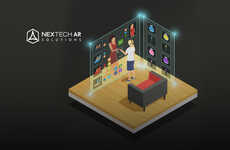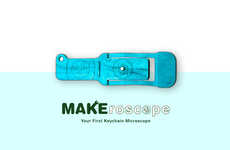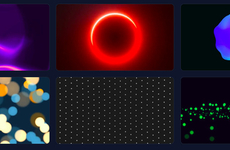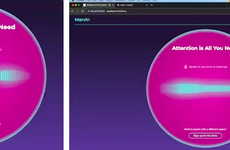
The Molecular Flipbook Helps Scientists Get Their Thoughts Out
Michael Baxter — March 20, 2014 — Tech
References: molecularflipbook.org & coolhunting
The Molecular Flipbook isn’t an everyday product, but it does provide a certain group of people access to some powerful tools. The Molecular Flipbook essentially allows scientists to use 3D modelling to more accurately render their projects.
When scientists talk or try and demonstrate something it can be incredibly difficult to keep up with them. Besides the jargon, the complexity of what they’re showing is difficult. The Flipbook is very close to a 3D photoshop for creating molecule models. It’s free and completely open source, allowing for varied and complex creations from just about anybody willing to try it.
The main draw to the Molecular Flipbook is that it’s much simpler than many other 3D platforms to use, which makes doing projects much faster and also more visually appealing than most other platforms.
When scientists talk or try and demonstrate something it can be incredibly difficult to keep up with them. Besides the jargon, the complexity of what they’re showing is difficult. The Flipbook is very close to a 3D photoshop for creating molecule models. It’s free and completely open source, allowing for varied and complex creations from just about anybody willing to try it.
The main draw to the Molecular Flipbook is that it’s much simpler than many other 3D platforms to use, which makes doing projects much faster and also more visually appealing than most other platforms.
Trend Themes
1. 3D Molecule Modeling - Opportunities for the development of user-friendly 3D modeling platforms that cater to the needs of scientists and researchers.
2. Open Source Tools - Potential for the growth of open source tools that allow for collaborative research and development of molecular structures in the scientific community.
3. Visual Learning - Promising prospects for learning technologies that utilize visual learning tools such as 3D modeling, which helps in simplifying complex scientific concepts.
Industry Implications
1. Scientific Research - The research industry can invest in developing 3D modeling and visualization tools to accelerate scientific discoveries and breakthroughs.
2. Education - Integrating 3D visual learning tools into the education curriculum can help students learn complex scientific concepts more effectively and efficiently.
3. Technology - Technological innovation companies can invest in the development of open source tools that will encourage collaboration and creativity in the scientific community.
0.9
Score
Popularity
Activity
Freshness















